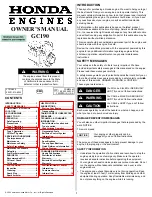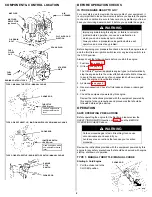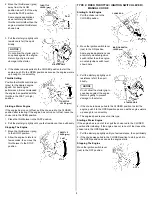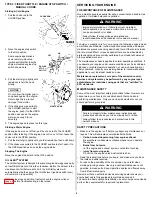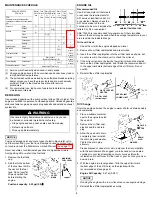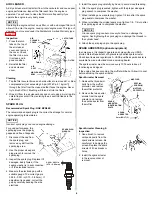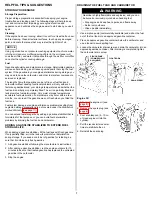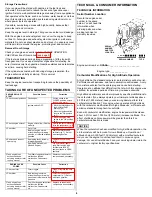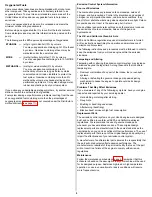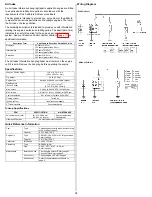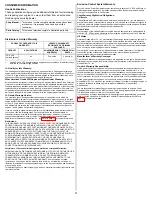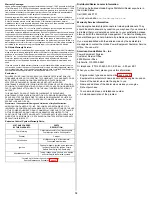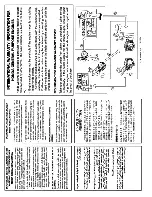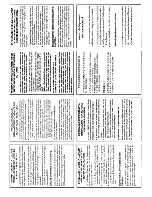
3
2. Move the throttle lever (gray)
away from the SLOW
position, about 1/3 of the way
toward the FAST position.
Some engine applications
use a remotely-mounted
throttle control rather than the
engine-mounted throttle lever
shown here.
3. Pull the starter grip lightly until
resistance is felt, then pull
briskly.
NOTICE
Do not allow the starter grip to
snap back against the engine.
Return it gently to prevent
damage to the starter.
4. If the choke rod was pulled to the CLOSED position to start the
engine, push it to the OPEN position as soon as the engine warms
up enough to run smoothly.
Throttle Setting
Position the throttle control lever
(gray) for the desired engine
speed. For best engine
performance, it is recommended
the engine be operated with the
throttle in the FAST (or high)
position.
Starting a Warm Engine
If the engine has run out of fuel, pull the choke rod to the CLOSED
position after refueling. If the engine has not run out of fuel, leave the
choke rod in the OPEN position.
1. Place the throttle lever in the FAST position.
2. Pull the starter grip lightly until you feel resistance, then pull briskly.
Stopping The Engine
1. Move the throttle lever (gray)
to the SLOW position.
2. Allow the engine to idle for a
few seconds, then move the
throttle lever to the STOP
position.
TYPE 2: FIXED THROTTLE / IGNITION SWITCH LEVER /
MANUAL CHOKE
Starting A Cold Engine
1. Pull the choke rod to the
CLOSED position.
2. Move the ignition switch lever
(red) to the ON position.
Some engine applications use
a remotely-mounted ignition
switch rather than the engine-
mounted ignition switch lever
shown here.
3. Pull the starter grip lightly until
resistance is felt, then pull
briskly.
NOTICE
Do not allow the starter grip to
snap back against the engine.
Return it gently to prevent
damage to the starter.
4. If the choke rod was pulled to the CLOSED position to start the
engine, push it to the OPEN position as soon as the engine warms
up enough to run smoothly.
5. The engine speed is preset on this type.
Starting a Warm Engine
If the engine has run out of fuel, pull the choke rod to the CLOSED
position after refueling. If the engine has not run out of fuel, leave the
choke rod in the OPEN position.
1. Pull the starter grip lightly until you feel resistance, then pull briskly.
2. If the choke was pulled to the CLOSED position to start, push it to
the OPEN position as soon as the engine starts.
Stopping The Engine
Move the ignition switch lever
(red) to the OFF position.
SLOW
FAST
THROTTLE
LEVER (gray)
STARTER GRIP
FAST
SLOW
THROTTLE
LEVER (gray)
STOP
FAST
THROTTLE
LEVER (gray)
CHOKE ROD
IGNITION SWITCH
LEVER (red)
ON
STARTER GRIP
OFF

